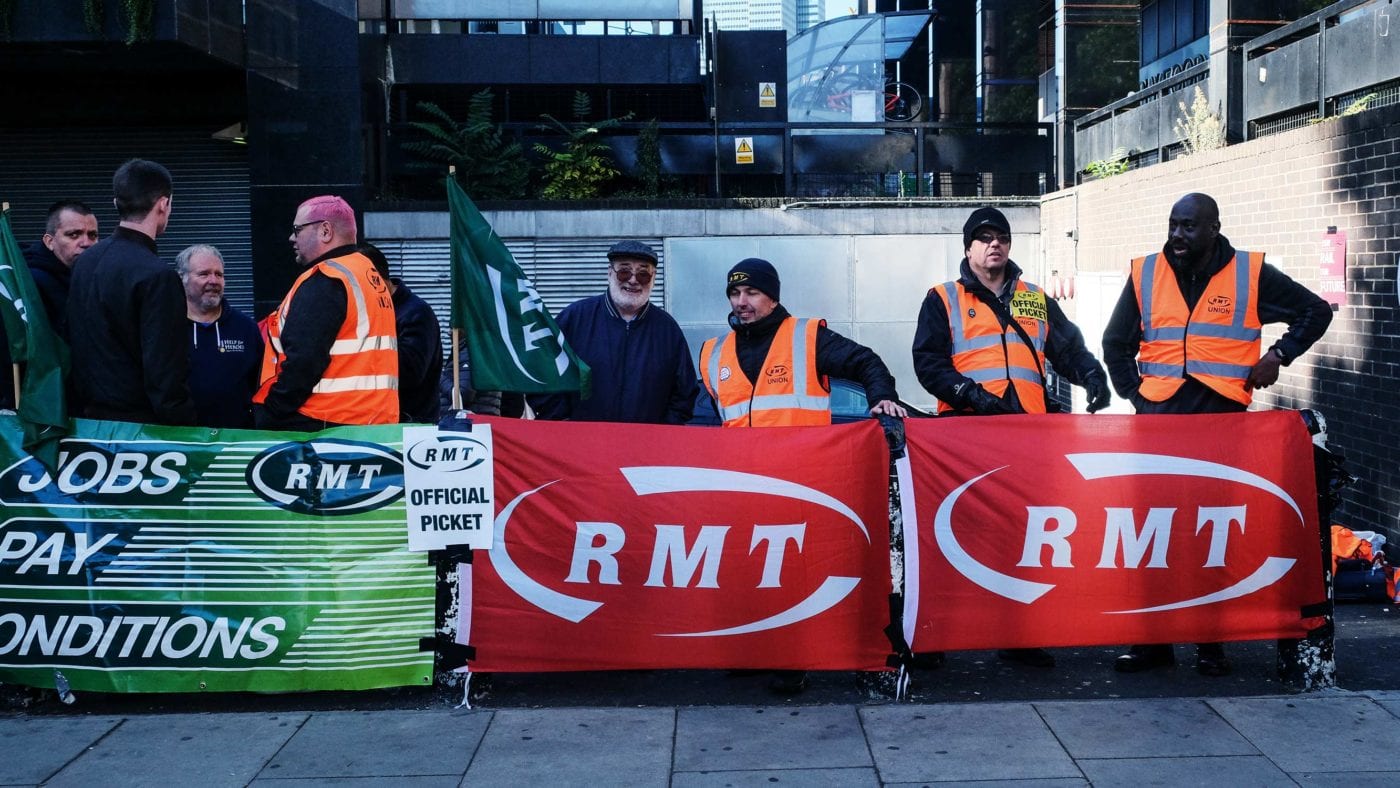This Saturday train drivers’ union ASLEF is striking again, and the RMT has just announced that it is planning two strikes before Christmas and two more in early January. The RMT strikes are nominally for two days each, but their effect will spread over several more days as rolling stock gets stuck in the wrong place, drivers and signalling staff are unavailable and so on.
To make matters worse, the RMT is operating an overtime ban from December 18 to January 2. As the system depends heavily on overtime work at weekends and in holiday periods – an arrangement which has historically suited rail employers as it keeps down the payroll count and the pension bill – disruption will extend to days when unions are not on strike.
According to Rail Minister Huw Merriman, these disputes have already cost the economy £500m pounds. It’s reasonable to suppose that, with the likely effect on the hospitality and entertainment business at their busiest time of the year, the round of pre-Christmas strikes will cost at the very least an extra £50m.
Britain’s railways are in a terrible mess. Even before strikes began in the summer, changing travel patterns – the big drop in expensive commuting and business travel, while cheaper weekend trains were busier – meant that fare revenue was well below pre-lockdown levels. The loss of experienced drivers, and the inability to train new ones (which takes up to 18 months in total) during Covid, meant that staffing was already a problem.
Six months of intermittent strike action and the poor performance under ‘normal’ conditions of some companies, such as Avanti on the West Coast Mainline, have already disillusioned many travellers. If this Christmas – the first for three years when full family get-togethers have been possible – turns out to be a strike-driven nightmare for rail users, more and more will switch to cars, buses and planes in future.
The unions seem slow to recognise that the 20-year boom following privatisation, which boosted pay considerably for many rail workers, is now over. The collapse of the franchise system due to the pandemic means that private train operating companies (TOCs) are now tied to a narrow service contract with a very low profit margin. They cannot offer more money to buy off the strikers. They have no control over fares or service levels, so cannot generate higher revenue, which in any case now goes direct to the Treasury, while the Department for Transport gets a budget from which it pays the TOCs and Network Rail.
The Shapps-Williams scheme to create Great British Railways, the new central planning body for trains, has apparently been shunted into a siding: it is now unlikely that there will be legislation this Parliament. So the passenger railways are under the direct control of the civil service, as they were back in the days of British Rail. We now have an effectively nationalised set-up, something which the unions and their supporters in the Labour Party, with their rhetoric about overpaid bosses and foreign-owned TOCs, don’t seem to recognise.
The new Transport Secretary, Mark Harper, is something of an unknown quantity. He has only junior ministerial experience previously, is an accountant by profession and has no obvious prior interest in railways or transport matters more generally.
The Rail Minister, however, does know quite a bit about trains. Huw Merriman was an effective Chairman of the House of Commons Select Committee on Transport and asked some quite searching questions of the RMT’s Mick Lynch when acting in that role. Merriman has a positive attitude to the railways and will want to end the various disputes. But with the gloomy economic outlook, the Government cannot just continue existing subsidies to the railways, let alone increase them. Without extra money being found, strikes and other industrial action seem likely to drag on well into the new year.
Liz Truss had planned to introduce long-await ‘minimum staffing’ legislation – a promise from the 2019 Conservative manifesto – but it’s not clear that the Sunak government carry on down that route. And even if that law was in place, it would do little to help. Minimum staffing might help facilitate simple rail journeys, but trips involving changes of train – London to Blackpool, Grimsby or Dundee; Edinburgh to Torquay or Shrewsbury – would still be very risky expeditions.
Given the apparent stalemate, union persistence in demanding inflationary pay increases without changing archaic working practices is very short-sighted. However, forcing Network Rail and the train operating companies to accept these demands could end up being a Pyrrhic victory for the unions. Given the railways’ finances, it would almost inevitably lead to reductions in services, closures of parts of the network and, ultimately, large-scale redundancies.
That would mean much of the country would having to learn to live without trains. Then again, in all this sound and fury, perhaps it’s worth remembering one important stat: four in ten of us never set foot on them anyway.
Click here to subscribe to our daily briefing – the best pieces from CapX and across the web.
CapX depends on the generosity of its readers. If you value what we do, please consider making a donation.


